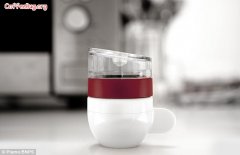PETA Asia also launched a campaign to stop the sale and consumption of Kopi Luwak.
Kopi Luwak, which is known as the most expensive coffee, has a unique flavor, with a price of several hundred yuan per cup, and is deeply loved by coffee fans. However, some international animal concern groups found that there was animal cruelty in the production of cat poop coffee beans and called for the suspension of the sale of Kopi Luwak. Hong Kong took the lead in responding.
Kopi Luwak, produced in Indonesia, is one of the most expensive coffee in the world. The official name of Kopi Luwak is civet coffee. The civet is a timid nocturnal animal that takes advantage of the night to eat ripe coffee fruit during a bumper harvest on the coffee plantation. However, they cannot digest the seeds, that is, coffee beans, which are excreted in their faeces. These coffee beans are collected, washed and roasted to form a unique flavor of Kopi Luwak.
The output of Kopi Luwak is very small, so it is very expensive. Also expensive, civets are trapped and raised in captivity.
PETA Asia visited six civet farms in Indonesia and the Philippines in recent months and found that civets, accustomed to the wild environment, were locked up in dirty, narrow cages less than one meter wide. Imprisoned civets can only eat coffee fruits, which are malnourished and often lose their fur. And for a long time trapped in the narrow space abnormal performance, they go crazy in the cage circle, moaning. Captive civets usually have only three years of "production". Farms catch adult civets and find that they will be "released" after a hunger strike, but civets will soon die in the wild.
PETA Asia made a short film about the tragedy of civets and launched a campaign to stop selling and drinking Kopi Luwak. Pointing out that there was animal cruelty in the production process of Kopi Luwak, "to buy Kopi Luwak is to support animal cruelty", called on coffee fans in Taiwan and Hong Kong to boycott, and have contacted merchants and importers selling Kopi Luwak in Hong Kong to demand that the sale of Kopi Luwak be suspended.
There are now 11 hotels or cafes in Hong Kong that specialize in Kopi Luwak, with prices ranging from HK $150 to HK $268 per cup. A spokesman for InterContinental Hong Kong told the media that he did not know the situation of the civet farm until he received a short film from PETA a few days ago. In order to support the protection of animals, they decided to stop selling Kopi Luwak from next Monday.
Important Notice :
前街咖啡 FrontStreet Coffee has moved to new addredd:
FrontStreet Coffee Address: 315,Donghua East Road,GuangZhou
Tel:020 38364473
- Prev

Piamo the world's smallest coffee machine can make a cup of espresso in 30 seconds.
According to reports, the Piamo coffee machine is made of edible-grade plastic and is divided into three parts: a cup body, a grinding room and a water accumulator. when heated by microwave, the water is changed into steam to steam the espresso powder, and the espresso will drop into the cup after 30 seconds. Just put it in the dishwasher when cleaning.
- Next

Animal cafes become popular Japanese birds, rabbits and goats accompany customers to drink coffee
In Japan, many people like to patronize cat cafes and spend leisure time in the company of docile kittens.
Related
- What grade does Jamaica Blue Mountain No. 1 coffee belong to and how to drink it better? What is the highest grade of Blue Mountain coffee for coffee aristocrats?
- What are the flavor characteristics of the world-famous coffee Blue Mountain No. 1 Golden Mantelin? What are the characteristics of deep-roasted bitter coffee?
- Can I make coffee a second time in an Italian hand-brewed mocha pot? Why can't coffee be brewed several times like tea leaves?
- Hand-brewed coffee flows with a knife and a tornado. How to brew it? What is the proportion of grinding water and water temperature divided into?
- What is the difference between Indonesian Sumatra Mantinin coffee and gold Mantinin? How to distinguish between real and fake golden Mantelin coffee?
- What does bypass mean in coffee? Why can hand-brewed coffee and water make it better?
- Unexpected! Ruixing Telunsu lattes use a smoothie machine to foam milk?!
- % Arabia's first store in Henan opens into the village?! Netizen: Thought it was P's
- Does an authentic standard mocha coffee recipe use chocolate sauce or powder? Mocha Latte/Dirty Coffee/Salty Mocha Coffee Recipe Share!
- What is the difference between Vietnam egg coffee and Norway egg coffee? Hand-brewed single product coffee filter paper filter cloth filter flat solution!

